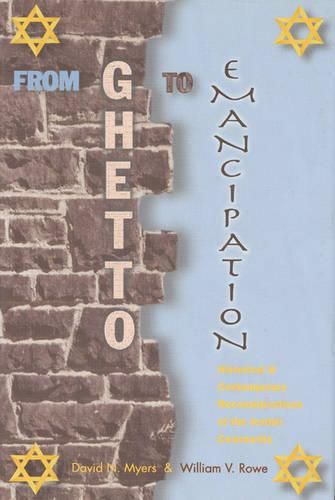Readings Newsletter
Become a Readings Member to make your shopping experience even easier.
Sign in or sign up for free!
You’re not far away from qualifying for FREE standard shipping within Australia
You’ve qualified for FREE standard shipping within Australia
The cart is loading…






The central addressed the conference question by reported on in this book was posed by Salo Wittmayer Baron, then a young Jewish historian, in his 1928 essay Ghetto and Emancipation . In it he challenged what he called the lachrymose conception of Jewish history in which the Jewish Middle Ages were all evil and Jewish post-Emancipation was all good. In asserting that medieval Jews possessed more rights than the great bulk of the population…and enjoyed full internal autonomy in the corporatist order of medieval civilization, he also found much to criticize in the loss of communal autonomy and the recasting of Judaism into a narrow confessional mold in the wake of the Enlightenment. In other words, how can a group seeking to preserve a measure of collective identity survive within a liberal society that values individual rights and obligations above all else? This became the basis for a conference in 1995 at the University of Scranton attended by a distinguished roster of scholars on various fields of Jewish studies from across the United States.
$9.00 standard shipping within Australia
FREE standard shipping within Australia for orders over $100.00
Express & International shipping calculated at checkout
The central addressed the conference question by reported on in this book was posed by Salo Wittmayer Baron, then a young Jewish historian, in his 1928 essay Ghetto and Emancipation . In it he challenged what he called the lachrymose conception of Jewish history in which the Jewish Middle Ages were all evil and Jewish post-Emancipation was all good. In asserting that medieval Jews possessed more rights than the great bulk of the population…and enjoyed full internal autonomy in the corporatist order of medieval civilization, he also found much to criticize in the loss of communal autonomy and the recasting of Judaism into a narrow confessional mold in the wake of the Enlightenment. In other words, how can a group seeking to preserve a measure of collective identity survive within a liberal society that values individual rights and obligations above all else? This became the basis for a conference in 1995 at the University of Scranton attended by a distinguished roster of scholars on various fields of Jewish studies from across the United States.